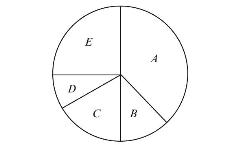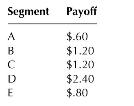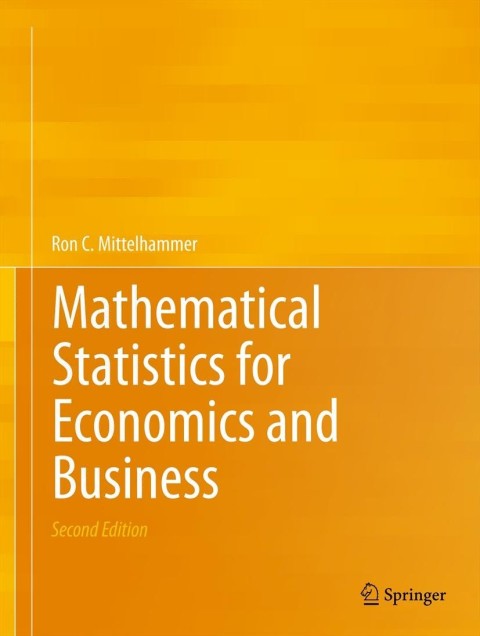A game of chance is considered to be equitable or fair if a player's expected payoff is
Question:
A game of chance is considered to be "equitable" or "fair" if a player's expected payoff is equal to zero. Examine the following games:
(a) The player rolls a pair of fair dice. Let \(Z\) represent the amount of money that the player lets on the game outcome. If the player rolls a 7 or 11 , the player payoff is \(2 Z\) (i.e., he gets to keep his bet of \(\$ Z\), plus he receives an additional \(\$ 2 Z\) ). If the player does not roll a 7 or 11 , he loses the \(\$ Z\) that he bet on the game. Is the game fair?
(b) The player spins a spinner contained within a disk, (7), that is segmented into five pieces as

where \(P(A)=1 / 3, P(\mathrm{~B})=1 / 6, P(C)=1 / 6, P(D)=1 / 12\), \(P(E)=1 / 4\).
Each spin costs \(\$ 1\). The payoffs corresponding to when the spinner lands in one of the five segments are given by:

Is the game fair?
(c) A fair coin will be tossed repeatedly until heads occurs. If the heads occurs on the \(j\) th toss of the coin, the player will receive \(\$ 2^{j}\). How much should the player be charged to play the game if the game is to be fair? (Note: This is a trick question and represents the famous "St. Petersburg paradox" in the statistical literature.)
Step by Step Answer:

Mathematical Statistics For Economics And Business
ISBN: 9781461450221
2nd Edition
Authors: Ron C.Mittelhammer





